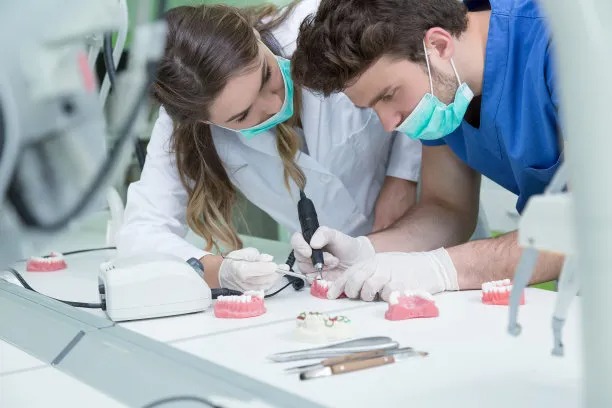Essential Guidelines to Ensure a Safe and Successful Dental Implant Procedure for Optimal Oral Health
Summary: Dental implants have transformed the landscape of restorative dentistry, offering an effective solution for lost teeth. However, ensuring a safe and successful dental implant procedure requires careful planning and adherence to specific guidelines. This article outlines essential strategies across four key areas: pre-operative planning, choosing the right dental professional, post-operative care, and understanding potential risks. By following these guidelines, patients can achieve optimal oral health and long-lasting results from their dental implants.
1. Importance of Pre-Operative Planning

Pre-operative planning is a critical step in the dental implant procedure. It involves a comprehensive assessment of the patient’s oral health, including dental history, medical conditions, and lifestyle factors. The more in-depth the evaluation, the better the outcomes for the patient. A thorough consultation with a dental professional can illuminate potential challenges and allow for modifications to the treatment plan.
Furthermore, advanced imaging technologies such as 3D cone beam computed tomography (CBCT) can aid in creating a precise surgical plan. This imaging technique provides detailed visuals of the jawbone and surrounding structures, helping to determine the optimal placement of the implant. Low bone density or the presence of previous infections can be identified during this phase, guiding the dentist in making informed decisions.
Additionally, establishing clear communication between the patient and the dental team is vital in this stage. Discussing expectations, procedures, and possible outcomes can greatly enhance the patient’s comfort level. The clearer the patient is about what to expect, the more effectively they can prepare themselves for both the operation and the recovery process.
2. Choosing the Right Dental Professional
Choosing the right dental professional is paramount in ensuring a successful dental implant procedure. Patients should seek out a dentist who specializes in implantology and has significant experience in placing implants. Credentials, training, and before-and-after photos of previous patients can help prospective patients in making informed decisions.
Moreover, the professionals approach to patient care matters significantly. Dentists who prioritize patient comfort and engagement build trust, making the process less intimidating. Open communication about techniques and preferences is essential for a collaborative relationship, which contributes to better outcomes.
It is also advisable to read reviews and testimonials from previous patients. Positive feedback regarding the dental professional’s abilities, facility, and post-care follow-up can help reinforce confidence in the decision. Referrals from friends and family can also provide insight into which professionals are most reputable in the community.
3. Post-Operative Care and Maintenance
Post-operative care is crucial for the success of dental implants. Patients must follow the aftercare instructions provided by their dental professional carefully. Basic guidelines include managing swelling and discomfort, adhering to prescribed medications, and maintaining proper oral hygiene to prevent infection.
Moreover, attending follow-up appointments is essential to monitor healing progress. The dental team can assess the stability of the implant and make recommendations on lifestyle changes, such as dietary adjustments or habits that may impede healing. Regular checkups can also lead to timely interventions if complications arise.
Patient education about long-term maintenance is equally important. Understanding how to care for implants, including effective brushing techniques and the avoidance of harmful habits like tobacco use, fosters lasting results. Patients should be proactive about their oral health to maximize the benefits of dental implants.
4. Recognizing and Managing Risks
Every surgical procedure carries inherent risks, and dental implants are no exception. Patients must be informed about potential complications such as infection, implant failure, or nerve damage. Understanding these risks prepares patients and allows them to weigh the benefits against potential downsides effectively.
Additionally, lifestyle factors such as smoking, excessive alcohol consumption, and uncontrolled diabetes can compromise healing and increase the chances of complications. A candid discussion with the dental professional regarding these factors can help establish a strategy to mitigate risks.
Finally, it is crucial for patients to have realistic expectations about the procedure and its results. While dental implants can significantly enhance oral health and aesthetics, they are not a one-size-fits-all solution. Being open to alternative treatments might be beneficial depending on an individual’s circumstances.
Summary:
In conclusion, navigating the dental implant journey successfully involves meticulous pre-operative planning, choosing a qualified professional, diligent post-operative care, and recognizing potential risks. Following these essential guidelines not only enhances the likelihood of a successful outcome but also contributes to the overall health of ones oral environment.
This article is compiled by Vickong Dental and the content is for reference only.



